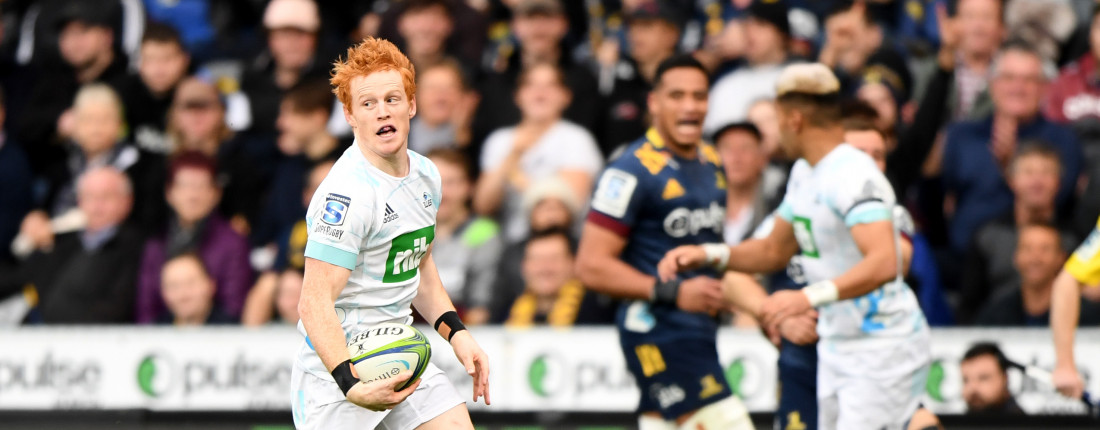
Throughout his four seasons of Sky Super Rugby, he has been in teams where the quality of halfbacks has been one of their strong points. Competing with Jonathan Ruru and Sam Nock for the Blues is just a continuation of his experiences at the Chiefs and Hurricanes.
Christie said his attitude was that if you wanted to be successful in rugby, it was necessary to be competitive because there were always people looking to take your position.
The Blues trio were mates, yet competitive, and they all benefited as players because of that.
"We help each other out, and that's the best way to go forward," he said.
While it had been his fate to be something of a journeyman in Super Rugby, he said there had been plenty of experience gained along the way.
But heading into his second season with the Blues, he is enjoying the process because of his earlier exposure to coach Leon MacDonald with the Tasman Mitre 10 Cup side.
MacDonald's approach at Super level was similar to what he did with Tasman, and having the chance to play under him again was an attraction for Christie moving north.
Despite where rugby has taken him, there is a connection with the region with his parents in Pukekohe, the education he had at St Kentigern and his first exposure to higher rugby with Counties Manukau age-group teams.
Christie couldn't settle into working life after completing his schooling. While part of the Counties Academy he decided to continue his education by heading to university in Christchurch. Rugby wasn't a driving force in that decision, but the southern environment suited him and playing for the University Club, he flourished to the point where he was Christchurch's best club player in 2016.
As a result, he won a contract with Tasman for the Mitre 10 Cup season. And from there he has never looked back. While he sports three Super Rugby memberships, he can also point to two Mitre 10 Cup titles as part of the consistent Tasman side.
"When I got the contract offer from Tasman, I didn't know anything about Nelson or the team, to be honest. I had seen them on TV in a few games, but I didn't know too much about it," he said.
"But the opportunity to go to the next step was overwhelming. I went up there, and as soon as I got there, I loved it. There was a great bunch of boys, great coaching and a great culture and Nelson was an unreal place to live in, so it was good."
Christie said the reason the side had achieved so much in recent seasons had to do with leadership among coaches and players. Having coaches from the region meant they cared about the side, and they reflected that in their approach.
Coaches Andrew Goodman and Shane Christie had both captained Tasman. As a result, the team had plenty of passion to build on the legacy they brought with them.
Making his connection with the Blues for the 2020 season coincided with a year like no other. Super Rugby was abandoned in the wake of the Covid-19 lockdown, but out of it emerged the Aotearoa version.
Christie didn't mind the break - he was able to recover from a neck injury that had been troubling him. But, the team had used the break to their advantage even while isolated from one another. They worked hard, completing programmes prepared for them and by keeping in touch regularly.
"That was pretty intense and made us work hard, so when we came back we were in good nick, and I think that was a turning point for us," he said.
As a result of his contact with different players, and the different experiences with the Blues, he extended his bank of rugby knowledge. That allowed him to apply that to a successful defence of Tasman's national title later in the year, even to the point where he returned with the underdog side to the visitors' dressing room at Eden Park for an upset final win over Auckland.
The spread of Tasman players across different franchises resulted in plenty of sharing of ideas when getting back together that was also a factor in the side's developmental success.
Christie is the epitome of the benefits of hard work. As his career developed, he was aware his passing was not at the level it should be, especially in passing off both hands.
"If you can figure out what you need to work on and what you are good at then you can get a good balance. To be a good halfback you have got to be fit and have a good pass. I've been trying to work on that for the last couple of years, and it seems a pretty good progression," he said.
